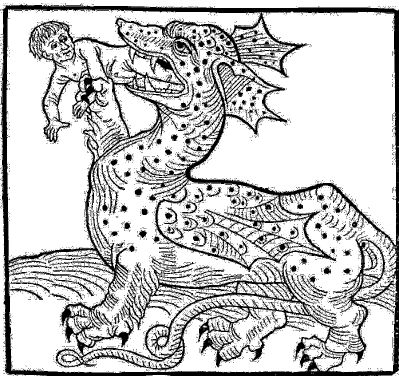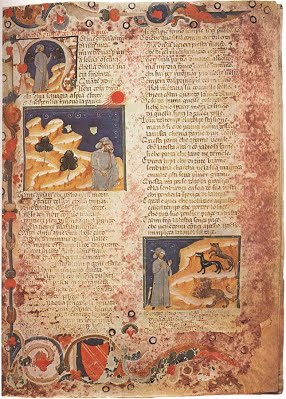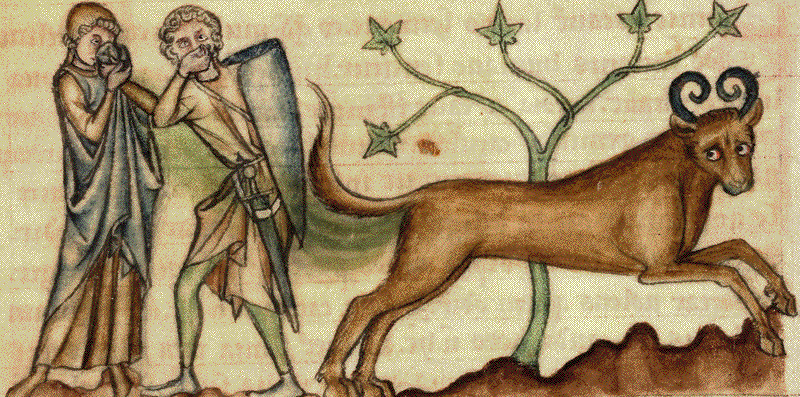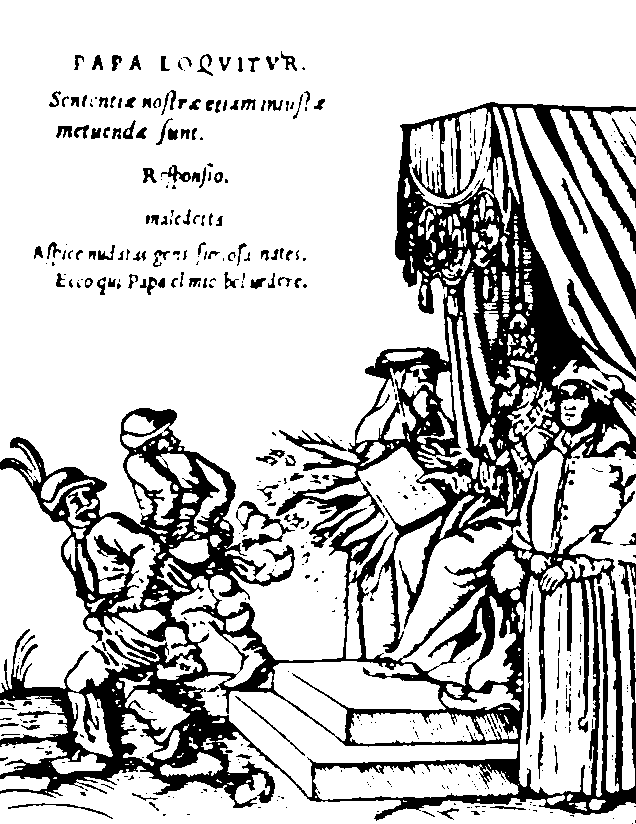|
Menu
Medieval Humor
Role Playing (and the Bard)
Well Met, I am Fugli...
- Fugli: the Artist and
Artificer<
- Fugli: The Musician, Bard,
and Troubadour
HuzzaH Worship
Il
Est Ne
On
the Woad (again)
Shakespeare: All the thrills without the frills
- Fugli: The Scribe and
Illuminator
Broadsides of a Village
Idiot Savant
What is Filk?
What is the Broadside Tradition?
|
Medieval Humor
 lthough my jokes may
reference medieval themes, like the melodies for
many of the songs that I play, they are not particularly true to the
period. If they were, their humor might fall even flatter on your ear. lthough my jokes may
reference medieval themes, like the melodies for
many of the songs that I play, they are not particularly true to the
period. If they were, their humor might fall even flatter on your ear.

I personally find this rather serious wood cut print to be hilarious.
No doubt it was meant to terrify, but the complete lack of emotion
makes me laugh.
One difficulty with comedy is that our collective
sense of humor is
shaped by our environment. So, what was considered hilarious during a
previous decade may seem stale, corny, or just not funny to our present
sensibilities. Medieval and Renaissance humor is not exempt from this
phenomenon. While laughter may be timeless, comedy is not.
To our modern perceptions, some medieval humor may seem beyond
sophomoric. That does not mean that it was never cerebral, but the more
complex the joke, the more one needs to explain the society to which it
was considered funny in order to understand what made it humorous. The
old adage applies: if you have to explain the joke, it is not funny any
more. Sometimes, however, the explanation can be more amusing than the
joke.
Some Typical
medieval riddle jokes (in modern English c. 15th century)
- How many calves' tails does it take to reach from the
earth to the sky?
A: Just one that is long enough.
- How can a man find a cow in a flock of sheep?
A: By seeing it.
- What is it that never freezes?
A: Hot water.
Situational
Humor is also typical of the time
- A certain jealous husband followed his wife to
confession; whom when
the priest should lead behind the alter to be displied [disciplined by
beating], the husband, perceiving it, and doubting the worst, cried
unto him, saying, "hear ye, master parson, I pray you let me be
displied for her." And kneeling down before the priest, "I pray you,"
quod the wife to the priest, "strike him hard, for I am a great
sinner." (c. 1583)
- [Triar mannach dorath diultadh don tsaoghal. Tiagait
a fasach do
athghaira a pecadh fri Dia Bhadar cin labhradh fri araile co ceann
bliaghna. Is ann isbeart fear dibh fri aroile dia bliaghna ‘Maith
atámm,’ ol se, ‘amen’ co cionn bliaghnai. ‘Is maith ón,’ ar in dara
fear. Batar ann ier suidhe co ceann bliaghna. ‘Toingim nam abith
(sic),’ ar in treas fear, ‘mine lecthi ciunnus damh co n-imgeb in
fasach uile dibh.’ Finis.]
- (As translated by Dennis King:) Three penitents
resolved to quit the
world for the ascetic life, and so sought the wilderness. After exactly
a year’s silence the first one said: "tis a good life we lead." At the
next year’s end the second answered: "it is so." Another year being run
out, the third exclaimed: "if I cannot have peace and quiet here I’ll
go back to the world."

And so, if you find any of my jokes to be funny, be assured that they
are not truly medieval.


Except for farts.
Bodily functions are considered funny no matter what time period you live in.

|

